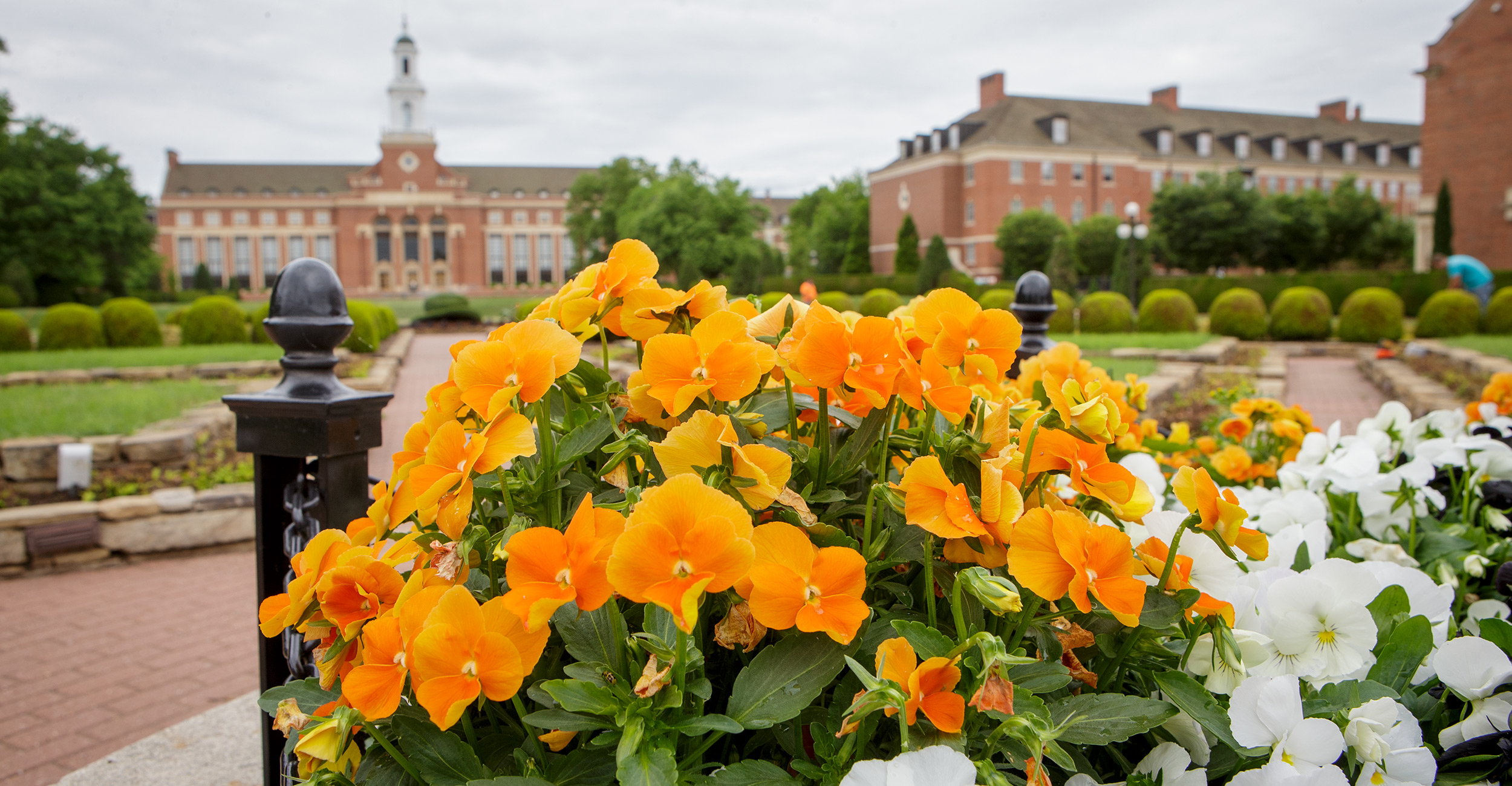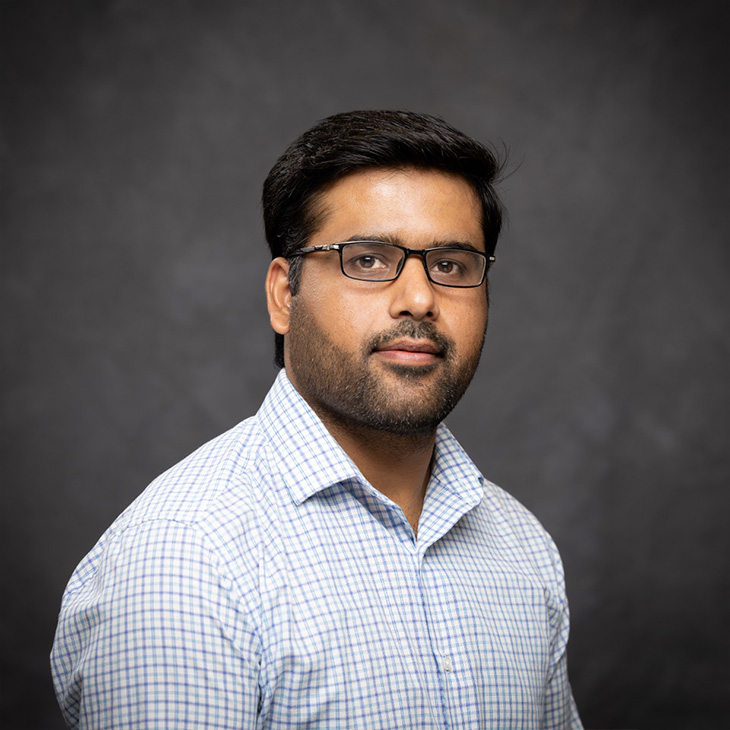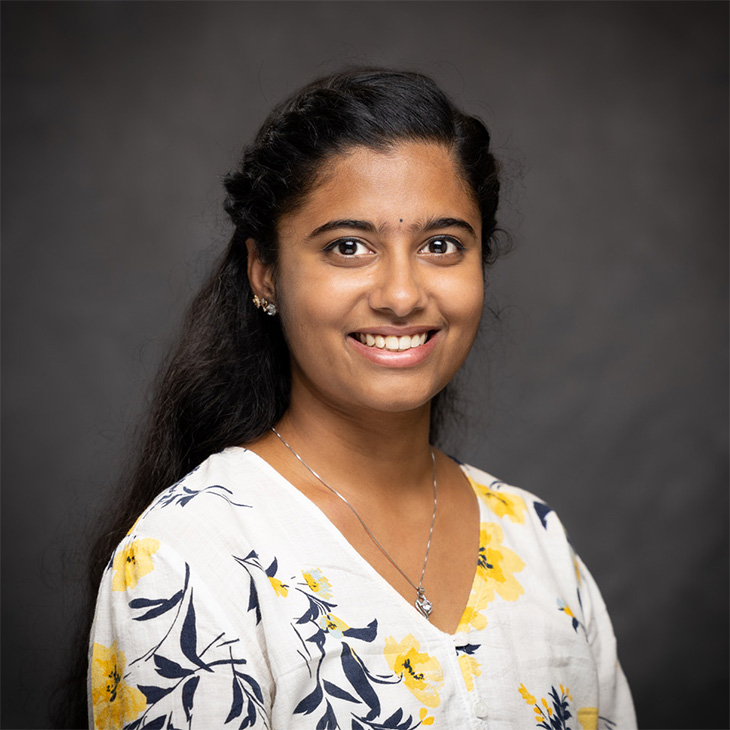
Cox Fellowship supports OSU researchers studying cancer and immunity
Monday, August 4, 2025
Two Oklahoma State University graduate students are pushing the boundaries of genetics research, driven by personal motivation and a shared commitment to improve human health.
Muhammad Zubair Mehboob and Poorvi Subramanian were awarded the Otto S. Cox Graduate Fellowship for Genetics Research, a competitive honor recognizing outstanding students pursuing impactful work in genetics.
Mehboob, pursuing a Ph.D. in Biochemistry and Molecular Biology, is researching rare genetic variants, subtle changes in DNA that can play a major role in cancer development. “Think of your DNA as a long instruction manual for how your body works,” Mehboob said. “Sometimes, a small typo in those instructions can lead to serious problems like cancer. But these typos are often so rare that they are easy to miss.”
Using computer-based tools, Mehboob searches for these genetic “typos” in specific genes, including CTRP6, which has been linked to several types of cancer. The goal is to detect the most impactful changes among hundreds of possibilities to support earlier diagnosis and more effective treatments.
His passion for the work is rooted in personal experiences.

“Seeing people around me suffer from cancer, often diagnosed too late, always hits me hard,” he said. “That curiosity is what drew me to study rare genetic variants and their use in early detection of disease.”
Mehboob called the Cox Fellowship a key milestone in his research journey.
“Being chosen as one of just two or three recipients across the campus is true recognition for my research and a source of motivation,” he said. “It has personally boosted my confidence and validated the hard work I have put into research.”
He plans to use the fellowship funding to attend a professional conference where he’ll present his work and expand his network.
“That conference is the perfect opportunity to use the fellowship support meaningfully,” Mehboob said. “It would help me build professional connections, expand my network and develop valuable collaborations for future growth.”
His long-term goal is to pursue a career in academia.
“I aim to lead independent projects, contribute to meaningful discoveries and mentor future researchers, because involving the next generation is key to shaping a better future,” he said.
Subramanian, who is pursuing a Ph.D. in Comparative Biomedical Science., is uncovering a new role for a little-known gene called RD3 in regulating the immune system. Her research shows that when RD3 is lost, the body’s immune balance is disrupted, potentially allowing tumors to escape detection.
“My research explores a new role for RD3 as a powerful regulator of the immune system,” she said. “By revealing this hidden function, my work helps redefine our understanding of how immunity is genetically controlled and opens new possibilities for advancing immunotherapy, including cancer immunotherapy.”
Her interest in RD3 began while studying how tumors interact with immune cells. She discovered a specific transcriptomic signature associated with the gene that governs processes like immune activation and tolerance.
“My research outcomes from this objective opened up a new avenue of RD3 gene function, probably in host immune composition,” she said. “This sparked my interest to investigate deeper at the roots, focusing my attention on both places where host immune cells develop and mature.”

Subramanian called the Cox Fellowship “both a profound honor and a defining milestone.”
“Personally, it affirms the passion and scientific curiosity that drives my work,” she said. “Professionally, it provides crucial support enabling me to pursue research in the field of genetics, immunology and cancer biology.”
With the fellowship’s backing, she plans to further investigate how RD3 shapes immune development and tumor surveillance. Subramanian also plans to pursue a research career and hopes to lead discoveries that benefit both human and animal health.
“I aim to become an independent scientist, and the Otto S. Cox Fellowship brings me a step closer to my career by supporting my training, expanding my research and helping me share my findings with the scientific community,” she said.
Awarded annually, the Otto S. Cox Graduate Fellowships for Genetics Research recognize and support graduate students across OSU who demonstrate a strong track record in genetics research. For both recipients, the fellowship offers more than funding, it affirms their purpose and opens new doors for future discovery.
